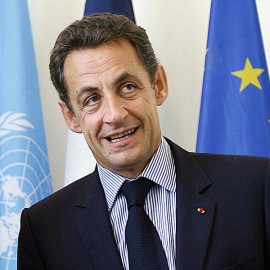
President Sarkozy has floated the idea of having French MPs to represent French people abroad. There are hundreds of thousands of French citizens living in the UK – London is now the seventh largest French city – and they currently have little voice in French politics. Candidate Sarkozy came to London to campaign for votes during the presidential election – French expats in the UK are probably more favourably disposed to the centre-right than the average French voter at home – and now he thinks about extending the principle.
In Italy, there already are parliamentary seats for expatriate voters, and in a narrow election they may well have made a difference. In the first years after communism, Hungary considered setting up polling stations among the ethnic Hungarians in Transylvania, but to do so would have caused a major dispute with Romania and so they wisely did not press ahead.
Giles Tremlett in the Guardian today welcomes the proposal. (Read the story here.) As a long time resident of Spain, he pays taxes there but has no vote: as a long-term expat from the UK, he has no vote here either. So where does he have a vote? The answer is nowhere, as far as national elections are concerned. (He has a vote in municipal and European elections, thanks to the Maastricht treaty, but as everyone reading this blog should know by now, the issues of tax and spend are decided nationally and not by the EU.)
The simplest and most straightforward change would be to extend the right to vote in national elections to long-term legal residents. Within the EU, this could be done on the basis of mutual confidence among the member states: ideally, there would be a treaty change but there is not much enthusiasm for another one of those in the near future.
As Giles Tremlett observes, the current system of denying the vote to long-term foreign residents makes a travesty of the principle of no taxation without representation. He has found another example where the principles of democracy and national sovereignty are in conflict: as ever, faced with such a conflict, this blog chooses democracy.
